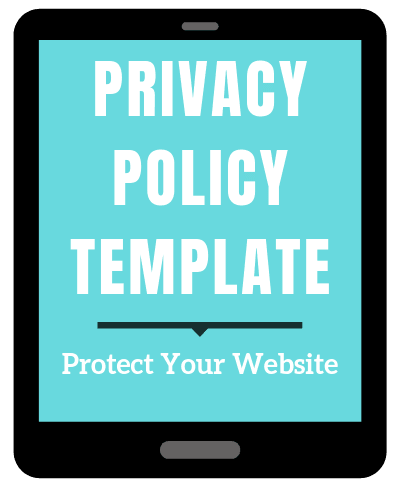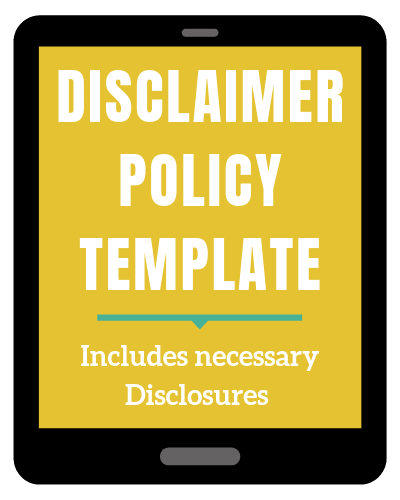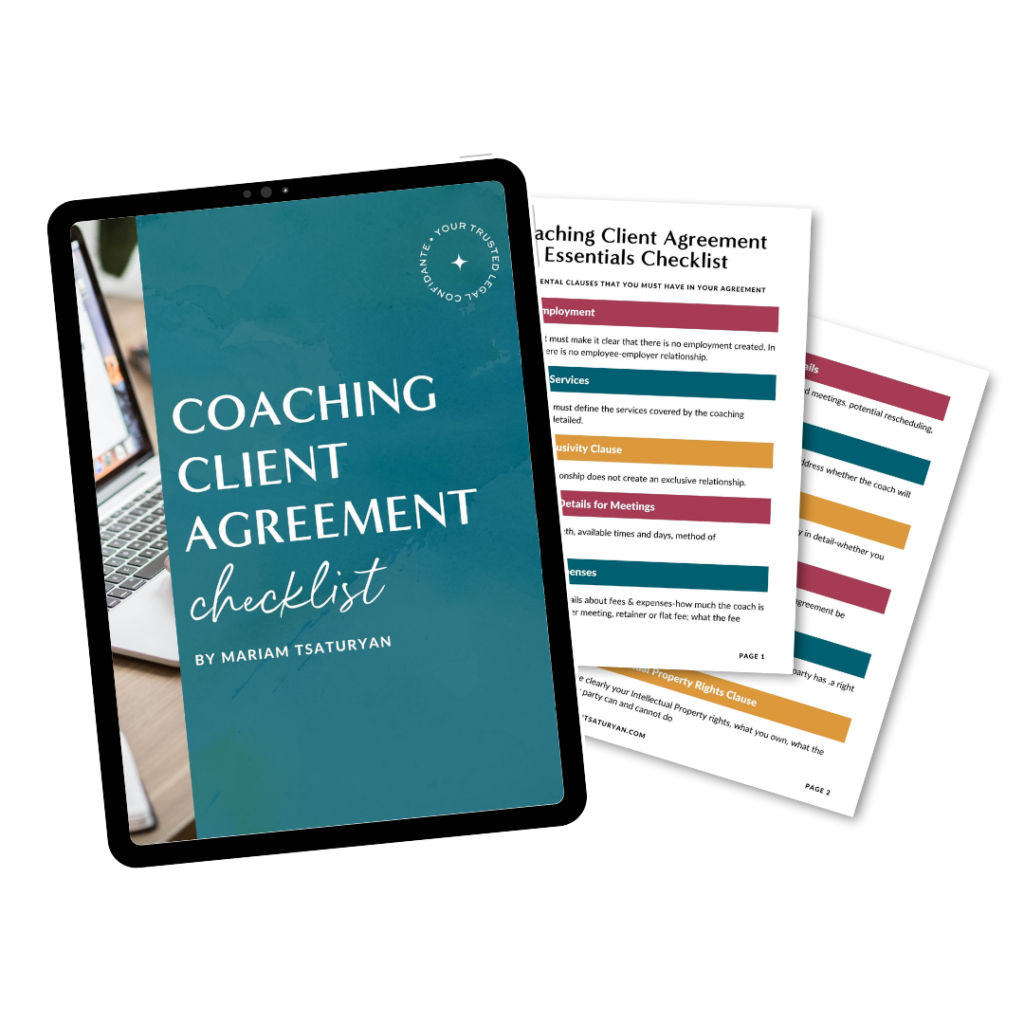Blog Legally by Having These legal pages and Copyright notice
Being an entrepreneur or blogger is no joke. These positions come with a number of responsibilities and obligations that you must follow and carry out. If you don’t, you’re risking having everything be taken away from you.
If you want to be safe, and legally compliant, your first step is to be informed about the legal pages for websites.
If you’re wondering what legal pages I am talking about, then you’re in the right place because I am going to break it down for you.
Must-have legal pages for websites
Depending on what stage you’re at in your business, you might have to have a policy here and there that others don’t. However, in general, there are a few policies that every website must have in order to be legally compliant.

So which legal pages should every website have? The answer is simple – Privacy Policy, Disclaimer with proper Disclosures, and the Term of Use (this last one while not mandatory, is highly recommended).
Website Privacy Policy
The first such policy is the website Privacy Policy.
Privacy Policy is mandated by law. You must have it on your website, whether or not you make money from it. Privacy Policy is the main legal page where you lay down terms, show that you’re abiding by regulations and different legal policies.

A good Privacy Policy must include language about the following:
- Data collection and retention
- How and for what purpose you’re using the data
- If you’re using cookie and what they are
- Compliance with General Data Protection Regulation (GDPR) law
- Information collected through third-parties
- California Online Privacy Protection Act (CalOPPA)
- California Consumer Protection Act (CCPA)-will be effective starting January 1, 2020
- Children’s Privacy Laws
- A section about CAN-SPAM regulations for email marketing
Aside from the particular sections that a Privacy Policy is supposed to have, it’s important to remember that each country or state has its own particular rules to abide by.
Therefore, when you’re writing your privacy policy or getting one from somewhere, make sure to be well informed of the important Privacy Policy law and regulation requirements.
You can get professional quality, attorney-prepared Privacy Policy from me. I personally wrote them, and sell them in my shop.
Not having a Privacy Policy, or not having a proper Privacy Policy can subject you to steep lawsuits and fines. In this digital age, courts and regulations are becoming stricter to protect an individual’s privacy as much as possible.
Website Disclaimer Policy and disclosures
A Disclaimer Policy with all the necessary Disclosures is one of the most important legal pages that are necessary for blogging legally and complying with different laws.
The role of the Disclaimer Policy is to limit your personal liability for the use of your website and its contents. For example, you might do your best to publish an accurate and up to date information. However, you’re only human. You could have missed something or made a mistake somewhere. If someone relied on your information and was hurt or suffered damages as a result of that inaccuracy or mistake, then you could potentially be facing a lawsuit.
Your Disclaimer policy will want to put your readers and website visitors on notice that your content is for educational and informational purposes only.

You should advise your readers to seek professional consultation with a professional in their required field.
Furthermore, a Disclaimer serves to protect you against failed expectations and results. Let’s say you were blogging about how you lost a certain amount of weight in 10 days by following a specific diet or doing a specific exercise.
If another person attempts to replicate your actions expecting to get the same results, but let’s say the don’t lose as much weight as you did, they can sue you. However, with your Disclaimer policy in place, you can clearly explain in it that individual results vary depending on many different factors. Just because you had that result, does not mean that the next person will have the same result as well.
A Disclaimer policy is also where you include all the necessary and appropriate disclosures about your affiliate networks and companies.
You also must make affiliate earning disclosure. An affiliate disclosure will be similar to the example below:
DISCLOSURE: This post may contain affiliate links to products and services. This means that if you click on my link to make a purchase, then I will get a small commission at no extra expense to you. You can read my Disclaimer Policy for more details.
In your Disclaimer policy, under the disclosures, you have to state one by one each company or network you’re affiliated with. Moreover, you have to keep updating this portion of the disclosures every time you become an affiliate with a new company or stop working with one.
Get your attorney-prepared Disclaimer Policy from my store. It’s 100% legally compliant and highly customizable.
Website Cookie Policy
I am sure you’ve seen cookie policy notices pop up when you visit a new website. It usually tells you that the website in question collects or stores cookies, and gives you an option to accept or you can decline.
This cookie popup is connected to a Cookie notice plugin, which generally has a way of scanning your site to find all your necessary and non-essential cookies. You’re supposed to link your Cookie Policy to this plugin so if people want a list of your cookies, they can read it on the policy.
I have a free cookie policy template that you can download below.
Website Terms of Use
This next legal policy for your website is the Terms of Use or as some people call it-Terms and Conditions. While this is not mandatory in the same way that a Privacy Policy is, it’s highly recommended that you have a Terms of Use policy on your site.
According to Website Policies, Terms of Use “is a legal document that sets out the rules, guidelines, and requirements that your users must agree to abide by in order to be able to use your services.”
Your Terms of Use policy will lay out the rules regarding your website and content use. You can specify in your policy who can use your website, which content they have access to.
Your Terms and Conditions policy defines how your readers or visitors may use your site, your content. Furthermore, it describes how your content can’t be used.
Terms of Use is where you should talk about your return and refund policies, provide Copyright details, talk about your payment and fee procedures, your membership system, any and all potential warranties, whether any changes or modifications can be done to your products and services.
Get your attorney-prepared Terms of Use from my store. It’s 100% legally compliant and highly customizable.
Aside from having laid out your rules for using your website or content, you should ideally have some kind of language there for violators. If someone breaks your rules and does abide by your Terms of Use, then they might get asked to pay a fine or not be allowed on your website ever again.
Terms of Use is highly recommended for online entrepreneurs and bloggers alike.
Your website must be legally compliant
We discussed the bare bones of necessary legal pages for websites. However, you might be wondering why it’s so important to have those legal policies on your website.
Here is the deal. Your website and blog are your business. Even if you just earned one cent from it, whether through ads, affiliate marketing, or by selling your own products – you now have a business.
As a business owner, legally you’re obligated to make sure that you follow all the existing rules and regulations.
However, aside from the fact that you’re a business and must comply, there is also the issue of data. Most, if not all, websites and blogs collect data from users in one form or another. If you’re collecting email addresses to add to your email list, or if you have a pixel on your site, or Google Analytics, ads, etc.-these are all methods through which you collect data on your website visitors.
Collecting data from visitors automatically makes you legally responsible.
You must be able to provide the reason and purpose for that data collection, as well as the extent of data you collect.
There are several existing rules and regulations throughout the world that are policing over internet data collection. One such major regulation is the General Data Protection Regulation (GDPR) which controls how data can and should be collected. To learn more about GDPR and how to legally get consent from your subscribers, read GDPR for Bloggers (Exact steps for complying).
Just like any other law in place, if you break the law, you will get in trouble. There is absolutely nothing different about the laws that you have to comply with when you’re an online entrepreneur or a blogger.
The legal policies mentioned above-Privacy Policy, Disclaimer Policy, and Terms of Use-are policies that you must and should have on your site.
When setting up your site and making sure you’re legally compliant, don’t cut corners! It’s scary how many times I read comments on Facebook where one person advises another:
“Don’t spend money on policies, there are online generators that will give you a free one.”
“Don’t pay money to an attorney, there is a plugin that will create a policy for you.”
“I just found a policy online on another’s site, and copy/pasted it and changed a few things.”
Ok, my answer to all of this is NO! The first two options are just careless because you’re trusting something as crucial as legal compliance to a generator or a plugin. This does not make sense to me. Yes, it’s cheaper, and sometimes even free to do that.
But are you really protected? Are your policies up to par? Does it have all the required, recommended, and should have language in it to make sure that you’re as protected as can be? Most often no, these policies don’t have it.
The third scenario, however, is not only careless, but it’s also illegal. You’re infringing copyright if you copy and paste someone else’s policy. Even with some changes, it’s still not allowed.
You can get a bundle of all 3 polices-Privacy Policy, Disclaimer Policy, and Terms of Use – from me without worrying whether your policies are legally compliant and whether you’re blogging legally.
The best and safest option for you or anyone else would be to get your own templates from an attorney. I provide this for my readers, as I have a shop on my site where I sell policies. I made my legal bundle super accessible for everyone, and have a payment plan for it.
Copyright notice for your website
Copyright is a form of Constitutional protection for your Intellectual Property. According to the U.S. Copyright Office, Copyright protects “original works of authorship fixed in a tangible medium of expression. Copyright covers both published and unpublished works.”
From the Copyright definition provided above, it’s clear that only original works are covered. Many different works get Copyright protection: art, paintings, songs, music, scripts, books (but not book titles), designs, statutes, etc. This is not it, however. As online entrepreneurs and bloggers, we want to make sure that our content online is covered.
Just so it happens, Copyright extends to websites, blogs, and other digital media. Your blog posts, videos, or podcasts are all covered under Copyright as literary works.
As the original creator of the work, you get Copyright protection right away. You don’t have to file for it in order to get it. It’s there, it’s yours.
So make sure to have some kind of copyright notice on your site to let others know that you have exclusive rights and your work is protected. Here is what a Copyright notice will look like typically:
Copyright (optional)-Copyright symbol (©)-Copyright date (generally just the year) – author’s name (or company name)-statement of rights
So my Copyright notice would look like this:
- Copyright © 2019. Mariam Tsaturyan. All rights reserved
The word Copyright before the symbol is optional. You don’t have to put it there because it’s redundant. Your Copyright symbol already says Copyright.
If you want to feel even more secure in your Copyright, you can register it with the U.S. Copyright Office.
If I have copyright protection, why should I register my copyright?
Registering your copyright with the Copyright Office gives you additional protection. Your Copyright stays the same, nothing changes as far as the protection of your work.
However, registering your Copyright gives you an opportunity to file for an injunction in court to stop your Copyright violator from benefiting and making money from your content. You cannot file for an injunction or temporary relief in court if your Copyright is not registered.
Moreover, when you do have an officially registered Copyright, you get a certificate for it. Imagine a scenario where someone violates your Copyright. Now imagine you send a cease and desist letter, where you tell them if they don’t stop what they’re doing, you’re going to sue them in court, and they will be fined roughly $150,000. Oh, and there is no question of Copyright issue here because you have a federally registered Copyright. (You’re going to include a copy of your Copyright certificate).
If I was a betting person, I would bet that your Copyright infringer would stop all of their illegal activities toward you right away. That peace of certificate carries with it. It says that your Copyright is serious.
Conclusion
The website legal pages and copyright are what you need to make sure you have a legal website. There are a few other pieces that you might need with time to make sure your day-to-day activities are legal and safe for you as well.
For now know that in order to blog legally and have a legally compliant website or blog, you’re going to need these online legal pages-Privacy Policy, Disclaimer Policy, and Terms of Use-present on your website. These policies need to be customized for your website and circumstances.
If you’re a new blogger or thinking about starting a blog, you most definitely need some direction on how to do it well, how to start everything correctly, what tools and resources to use, etc.
There are many guides, free and paid online courses available for you out there. However, there an in-depth guide by one of my blogger friends, McKinzie of Moms Make Cents, that includes everything you’ll possibly need to know about starting your own blog. Give it a read before setting everything up.
Once your blog is set up, make sure to follow the steps and tips I gave in this post to make your blog legal.
Are you blogging legally? Make sure to pin or share with others also.



I need to get my cookies in place. Thank you so much for the amazing content and the template.
Hi Kimberlie! You’re so welcome. I am glad you found the content helpful and liked the cookie policy 🙂